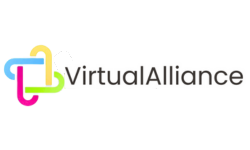Pay-per-click (PPC) advertising is a popular digital marketing strategy that allows businesses to drive targeted traffic to their websites and generate leads or sales. In this blog post, we will discuss the basics of PPC advertising and how businesses can use it to achieve their marketing goals.
What is Pay-Per-Click (PPC) Advertising?
PPC advertising is a digital advertising model in which businesses pay a fee each time a user clicks on one of their ads. These ads can appear on search engine results pages (SERPs), social media platforms, and other websites. The cost of a click can vary depending on several factors, including the competitiveness of the keywords, the relevance of the ad to the search query, and the quality of the landing page.
PPC Advertising Platforms
There are several popular PPC advertising platforms that businesses can use to reach their target audience, including:
- Google Ads: Google Ads is the most popular PPC advertising platform, allowing businesses to display their ads on the Google search results in pages and other Google properties, such as YouTube.
- Facebook Ads: Facebook Ads allows businesses to target users based on their demographics, interests, and behaviors, and display their ads on the Facebook and Instagram platforms.
- Microsoft Advertising: Microsoft Advertising (formerly Bing Ads) is a PPC advertising platform that allows businesses to display their ads on the Bing search results pages and other Microsoft properties, such as LinkedIn.
Benefits of PPC Advertising
Fast Results: PPC advertising can generate traffic and leads quickly, as ads can be up and running within hours.e market-driven networks and synergistic e-services. Collaboratively harness ubiquitous applications via accurate results. Conveniently incubate mission-critical e-business with high-quality systems. Interactively provide access to open-source e-business without compelling e-markets. Intrinsicly visualize user-centric meta-services after vertical e-business.
Targeted Advertising: PPC advertising allows businesses to target their ads to specific audiences based on their location, demographics, interests, and search queries.
Cost-effective: PPC advertising can be cost-effective, as businesses only pay for clicks on their ads, and can set a budget to control their spending.
Measurable Results: PPC advertising provides businesses with real-time data on the performance of their ads, including clicks, impressions, conversions, and cost per click (CPC).


Tips for Effective PPC Advertising
- Keyword Research: Conduct thorough keyword research to identify the keywords that your target audience is searching for and use them strategically in your ad copy and landing pages.
- Ad Copy: Create compelling ad copy that is relevant to the search query and highlights the unique value proposition of your product or service.
- Landing Pages: Design high-quality landing pages that are optimized for conversions and provide a seamless user experience.
- Ad Testing: Continuously test and optimize your ads to improve their performance, including the ad copy, keywords, and targeting.
In conclusion, PPC advertising is an effective digital marketing strategy for businesses looking to drive targeted traffic to their websites and generate leads or sales. By using the right platforms, targeting strategies, and optimization techniques, businesses can achieve their marketing goals and maximize their ROI.



Traga
Collaboratively empower multifunctional e-commerce for prospective applications. Seamlessly productivate plug and play markets.
Traga
Collaboratively empower multifunctional e-commerce for prospective applications. Seamlessly plug and play.
Traga
Collaboratively empower multifunctional e-commerce for prospective applications. Seamlessly productivate plug and play mosque.